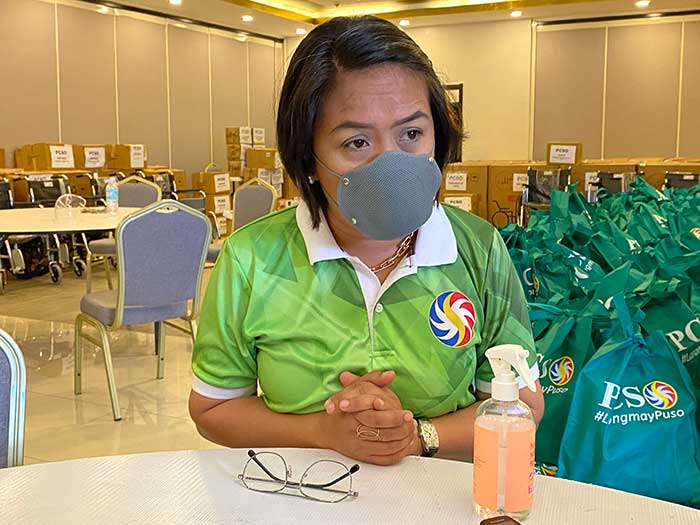
By Joseph B.A. Marzan
Philippine Charity Sweepstakes Office (PCSO) general manager Royina Marzan Garma travelled to Iloilo on Friday to turn over material assistance, and to meet with the region’s newly authorized Small Town Lottery (STL) agents and local government and police officials.
The PCSO aid to local government units (LGUs) include P3 million worth of food and medicines, and medical equipment for municipal health clinics.
At the height of the coronavirus disease 2019 (COVID-19) pandemic, the PCSO was one of the government entities which remained open to continue providing medical assistance.
She mentioned that they had committed P1 billion to the Office of the President (OP) for pandemic response. The funds were then returned to PCSO for its medical access program.
Almost P400 million of the PCSO funds were given to hospitals across the country under the Department of Health (DOH), as well as provincial hospitals. The allocations depended on bed capacity, and medicines were also given to LGUs through PCSO branch managers.
“We were able to still provide expected charity assistance despite the PCSO having no operations, because we rely only on the games. During shutdowns, we have no source of funds. It was good during the time that we saved up from the first 3 months. Our operational funds were also saved up, and we cut many programs so we can also survive the end of the year, and the excess of the operating fund which we saved up the past year became charity fund the following year,” Garma said.
She met Authorized Agent Corporations (AACs) from Aklan, Antique, Capiz, and Iloilo province, and another operator from Guimaras who had been authorized to operate in Iloilo City.
She said that Iloilo province has the highest revenue from STL operators in the region with P45 million, while Aklan posted the lowest with P8.7 million. The revenues are based on the Presumptive Monthly Retail Receipt (PMRR) of each operator.
She also introduced the operators to LGUs and the Philippine National Police (PNP) officials “to garner their 100 percent support”.
LGUs have a 0.5 percent share from STL revenues and 1 percent from the national Lotto revenues which are remitted to every 6 months.
The PNP has a 0.5 percent share remitted to its headquarters in Quezon City.
Garma encouraged LGUs to request for additional support from the PCSO, under the office’s regular charity and Corporate Social Responsibility (CSR) programs.
She added that AACs are also encouraged to support LGU programs and projects and initiate their own CSR projects.
They will operate on a probationary period starting July 1, after which they will be monitored by the PCSO for compliance with their guidelines leading to a regular permit of 3 years.
Garma also said that PCSO games have been allowed in areas under the Modified Enhanced Community Quarantine (MECQ), provided these are allowed by the LGU.
Some of the public health rules the PCSO set for agents are consistent wearing of face coverings (mask and shield), provision of alcohol, limited physical contact with customers, using trays in booths, and time restrictions on transactions.
“Sometimes, the LGU knows better in what happens in their area. Our guidance to [STL agents], especially to our new agents, is to strictly follow the protocol. It is very clear in the contracts we signed and in the Implementing Rules and Regulations of STLs which they have to comply,” Garma said.
She said that the PCSO will be tough in implementing their regular and pandemic protocols. She cited examples in Isabela province and Mandaue City, Cebu, where AAC contracts were terminated due to refusal to remit revenues and adhere to increased revenue mandates, respectively.
















